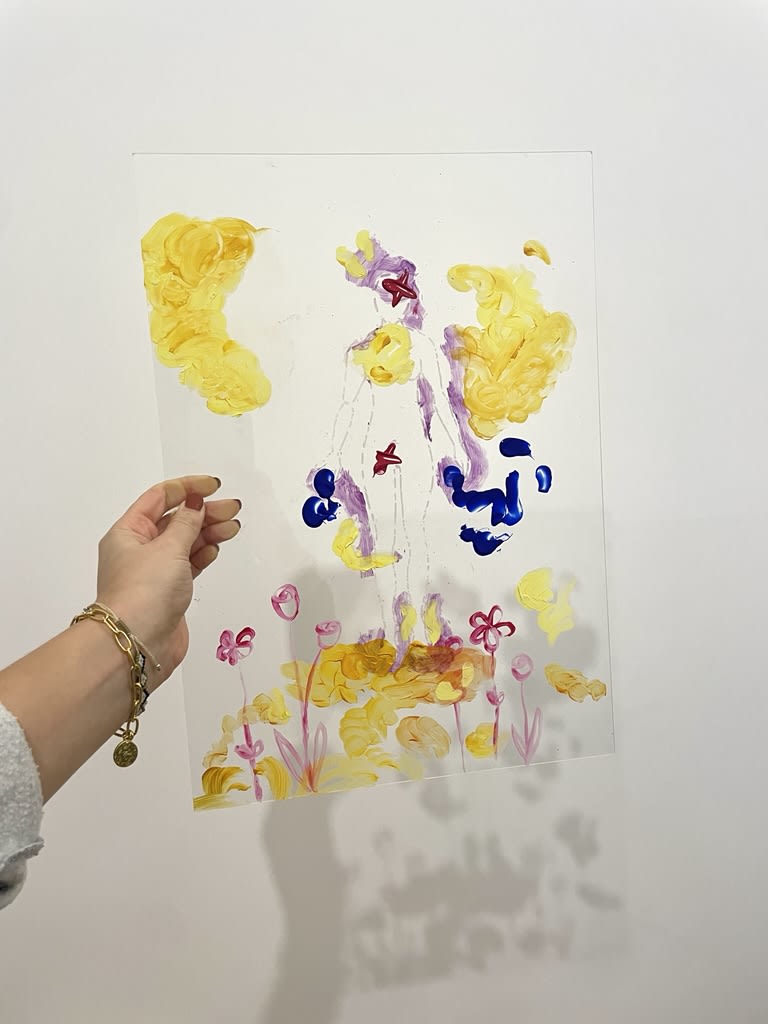
Prosthetics - Layers of Perception: Natalia Mesa Echavarria's SURGE III Artist Residency Workshop Report

- Written byNatalia Mesa Echavarria
- Published date 30 January 2024

SURGE III is the third instalment of UAL's Post-Grad Community (PGC) and UCL's WEISS Centre collaborative programme that brings together scientists, artists and the public to explore the complexities and application of technology in surgery.
PGC and WEISS have commissioned three artist and researcher teams to work with patient groups to develop art and design-led solutions to technical healthcare.
Background
This workshop was created and led by Natalia Mesa and Morenike Magbagbeola. Natalia is an artist completing a MA Art and Science at Central Saint Martins, who specialises in painting, drawing and engraving, and focuses on collective memory, trauma, neuroscience and Colombia’s history in her practice. Morenike is a PhD scientist and researcher in Adaptive Sensory Robotics.
The workshop’s focus was to explore the complexity of touch sensation through the interaction of traumatic amputees with prosthetics. The underlying idea is that touch sensation is complex due to its layered nature. The “layers” are mechanical receptors, electrical signaling in the nervous system, chemical interpretation in the brain, cognitive perception, and on top of that, emotional and traumatic levels associated with prosthetics.
One aim of this workshop was to present cutting edge technology in self adaptive vibrational feedback for upper limb prosthetics. More importantly, the aim was to listen to patients and learn from their experiences with prosthetics, to better understand the layered needs of people who use prosthetics and are in the process of healing their mind and body.

During the workshop our emphasis was be on listening to the patients and talking about the following things:
- Their experiences with prosthetics and what they think the best balance of high-tech to non-tech functionality is.
- Their experiences with phantom limb pain and how using active prosthetics has changed their symptoms.
- How they imagine the different physical and emotional layers of perception.
- What their “dream” prosthetic would do.
Conversation was paired with art-making, each participant was mailed the necessary materials and a worksheet that outlined some art therapy inspired exercises. The exercises focused on expressing sensations of physical or emotional pain in the mind and body, taking the pain outside the body on a separate artwork, and then healing those emotions and sensations with new artistic expressions. Each step was made on a separate transparent acrylic sheet in order to then be able to layer each piece over each other and create a layered painting of experiences with prosthetics.
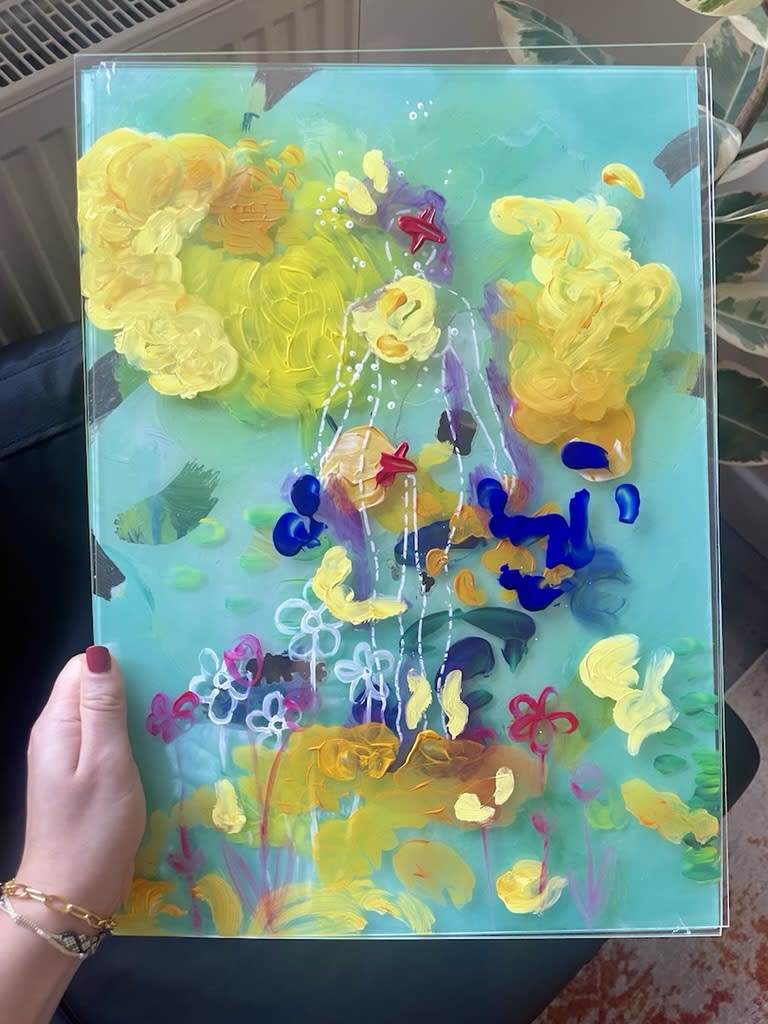
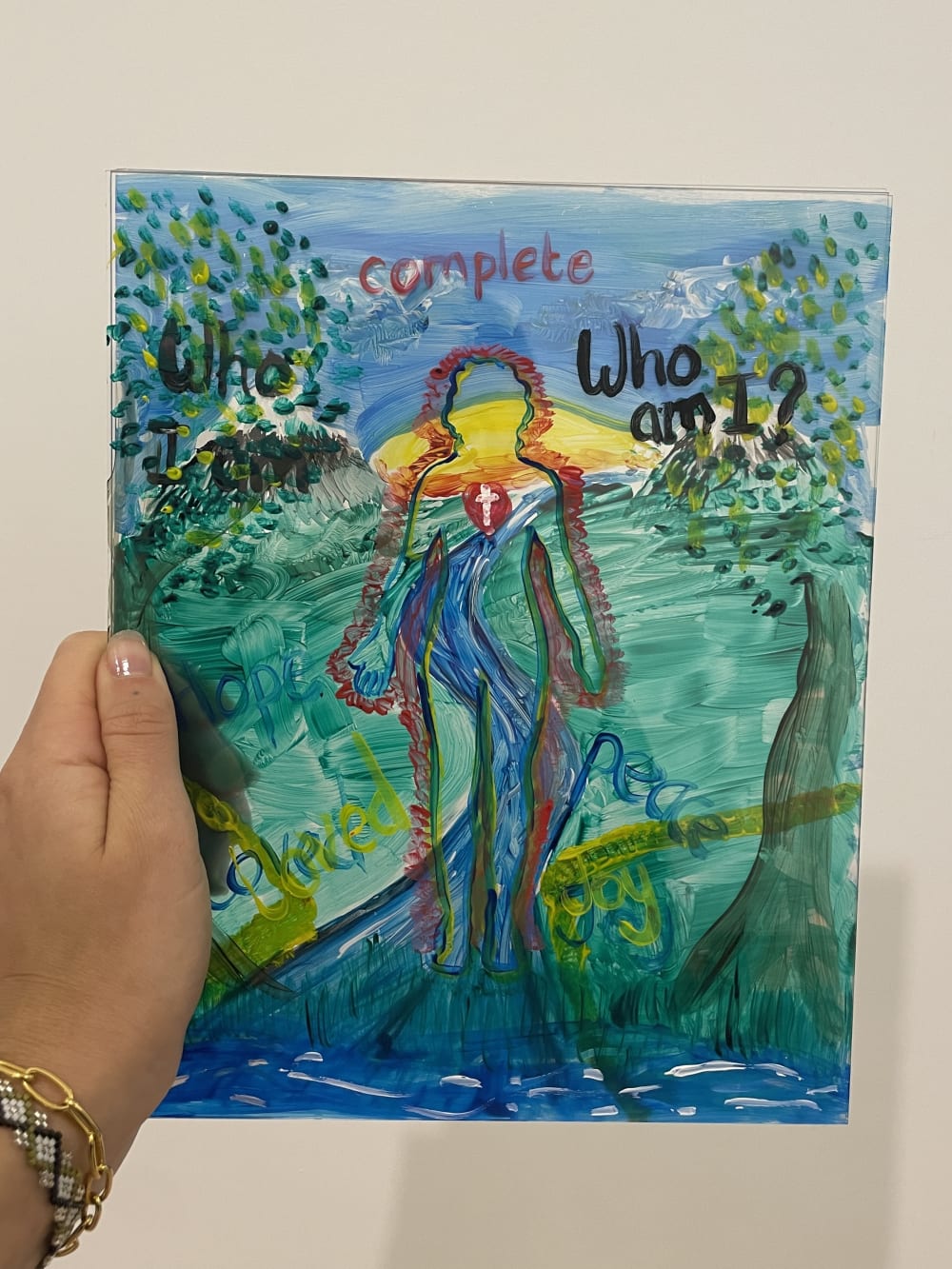
The Workshop
The workshop took place online on a Friday evening and three participants attended, Morenike, Natalia and Simon (WEISS Public Engagement Manager) also took part in the workshop. We found the recruitment of volunteers more difficult than expected, initially because traveling into London for the workshop was unattractive to the target audience, and later on because the charities contacted were not as responsive, and the support groups for amputees were not as tightly knit. However, having three participants participate facilitated a more intimate atmosphere during the workshop and conversations reached deeper levels.
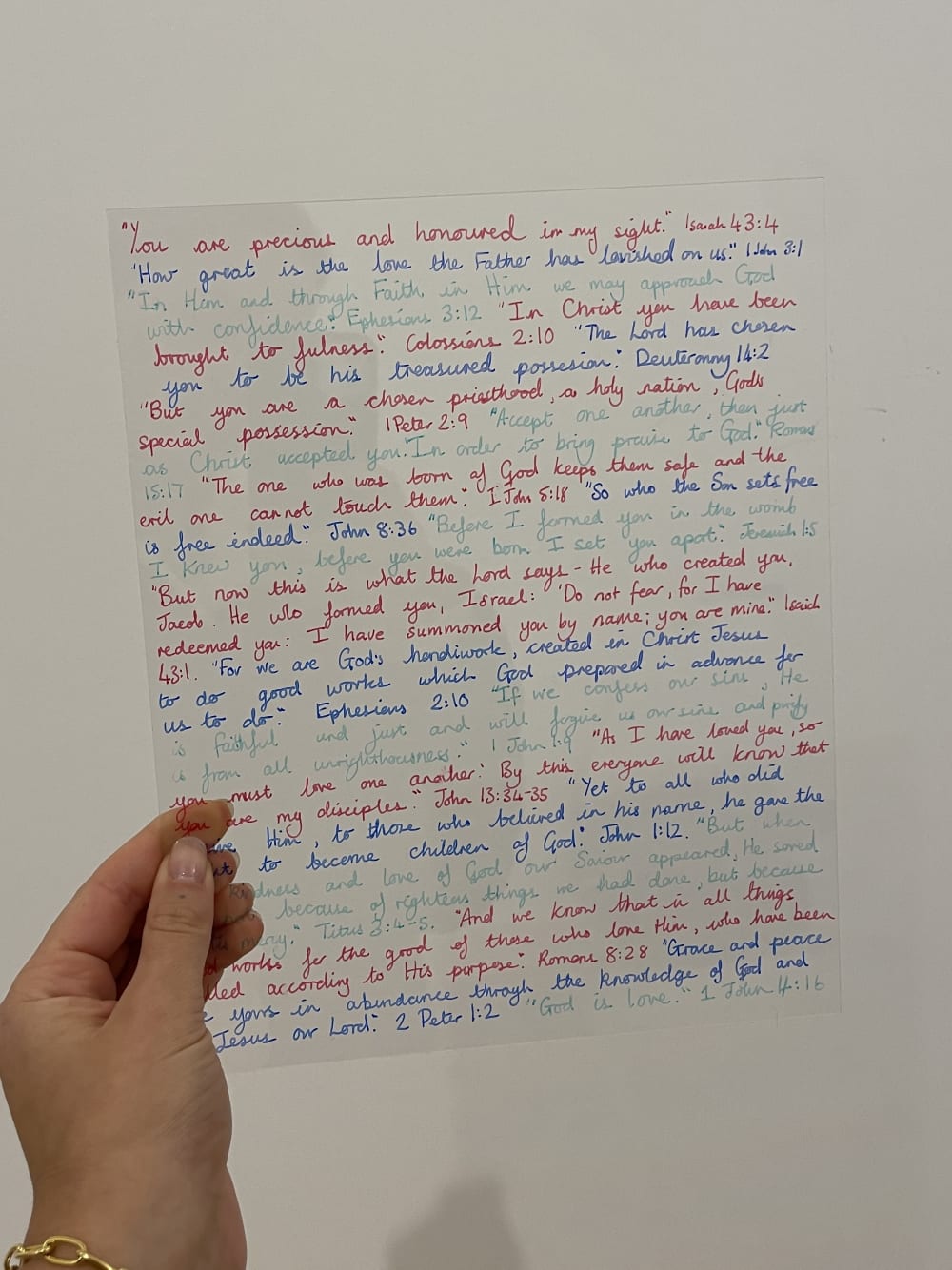
After initial introductions, Morenike explained her research in self adaptive vibrational feedback and how the research is moving towards developing prosthetics that simulate a sensation of texture. The participants were immediately intrigued and interested, and opened up sharing the faults of their prosthetics and what they wished researchers and developers would focus on. After some initial conversation about the technical difficulties of using a prosthetics, we steered the conversation to the “layers of perception”, initially explaining the layers (as mentioned in the “Background” section above) and then walking everyone through the art therapy inspired exercises. While everyone prepared their materials, some examples previously made by Natalia were shown and a few painting strategies were offered.
At this moment, a participant shared that she had autism and asked for the exercises to be broken down step by step to make them easier to follow, and another participant chimed in saying he had cerebral palsy and also preferred to be walked through the activities. Thus, we moved through the exercises slowly, each participant sharing their paintings on camera and explaining why they painted what they did, what their gestures and colours represented, and how they were finding the experience. Participants were eager to make the body outline provided look like them, and had a humorous attitude when it came to “chopping off the limbs”, they also openly shared their experiences with mental health, doctors, and uncomfortable social situations.
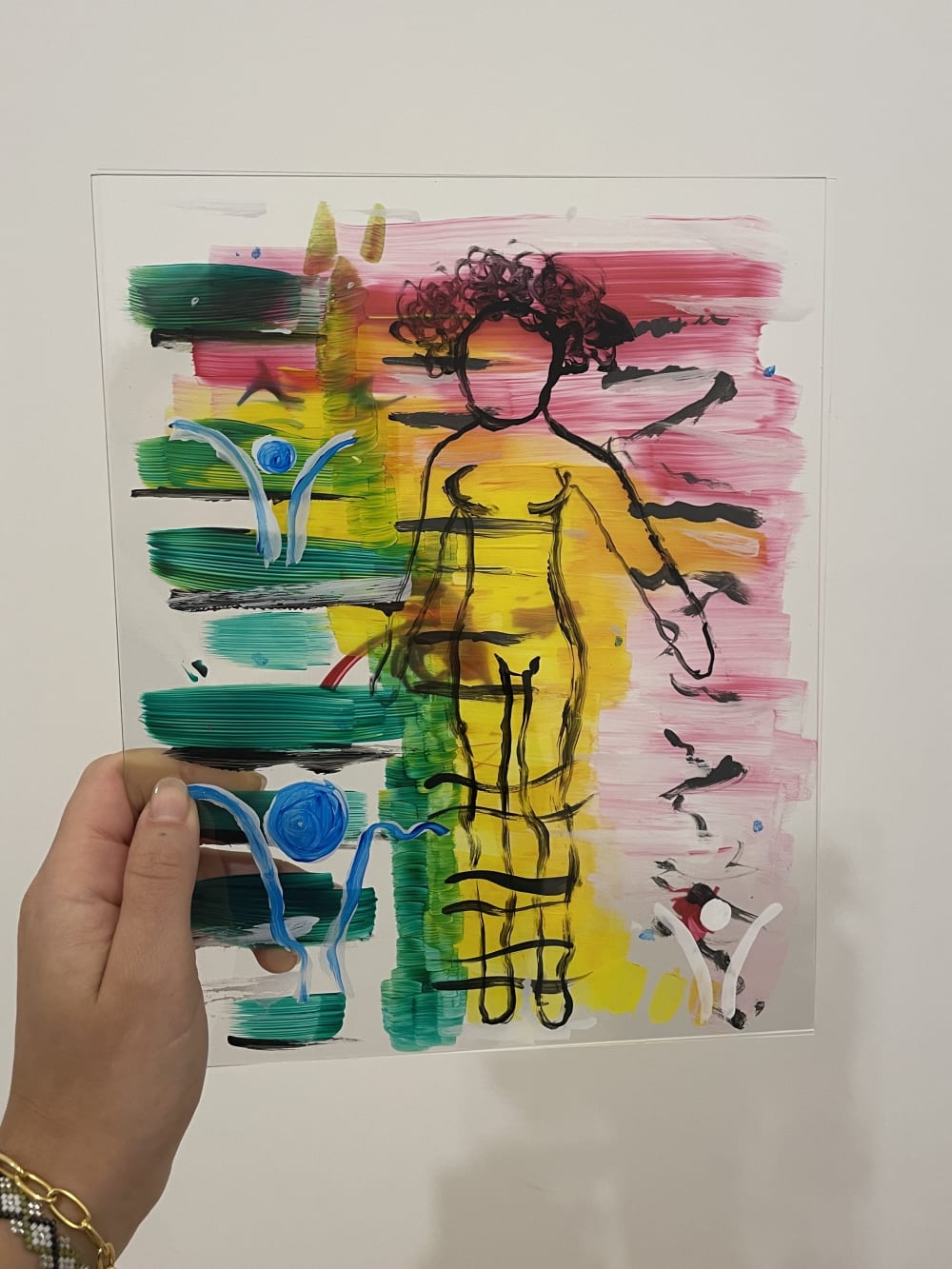
As everyone painted, conversation fluctuated between disability, pain, isolation, shame, depression, anxiety, identity, phantom limbs, uncertainty, support systems, language, hope, religion and personal experiences. There were very serious moments, and there were humorous moments as well. We also talked about finger painting, mixing colors and symbolism in art. The two hours flew by, and at the end we had some concluding conversations about how positive this experience had been.
Additional to the very emotional personal stories about their amputations shared, the topics that stood out were the emphasis on more practical and lightweight prosthetics, education around amputation for the general public, better use of language in the realm of disability, the need for more psychological and emotional support post-amputation, and the notion that patient’s lives are sometimes improved after losing a limb! The workshop was touching, highly informative, emotional, humorous, serious and creative.
Related Links
- Wellcome / EPSRC Centre for Interventional and Surgical Sciences (WEISS)
- UAL Post-Grad Community
- SURGE I exhibition walkthrough
- Follow Natalia on Instagram
- Find out more about the SURGE III partnerships
Post-Grad Stories
A thriving online magazine of our postgraduate student voices sharing thought-provoking experiences, practices, thoughts and articles about what matters to them.
Download the PDF Guide to writing articles for Post-Grad Stories
Want to write an article? Get in touch with the Post-Grad Community team PGCommunity@arts.ac.uk
UAL Post-Grad Community
Established in 2013, Post-Grad Community is an inclusive platform for all UAL postgraduate students to share work, find opportunities and connect with other creatives within the UAL and beyond. Find out more